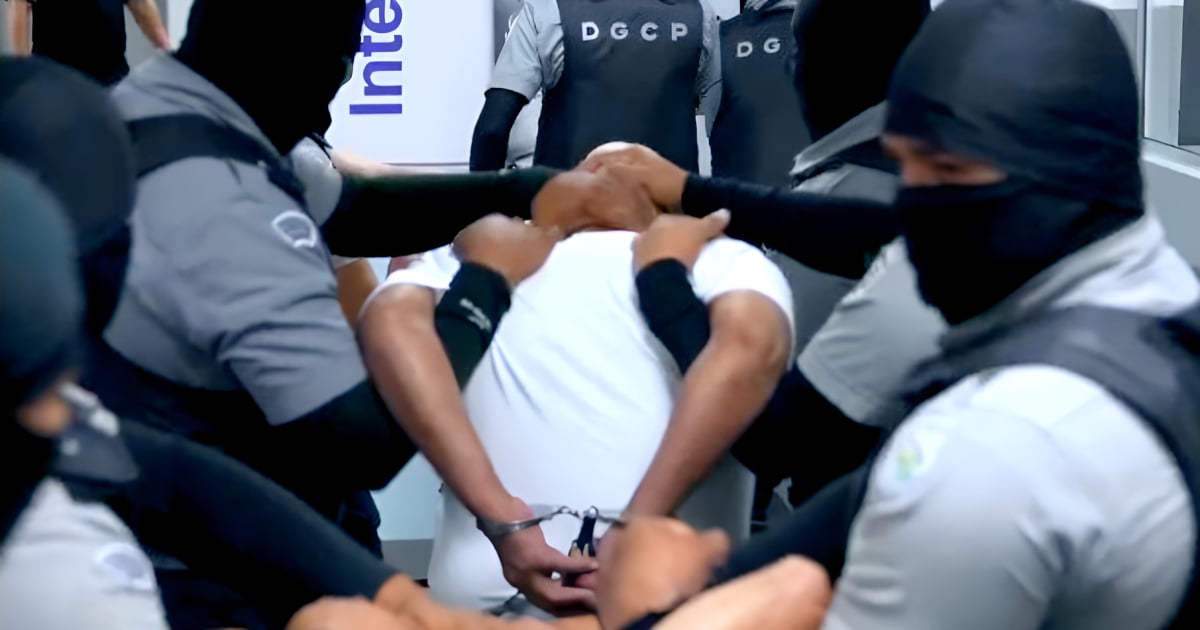
Related videos:
A Salvadoran father residing in Maryland was mistakenly deported to El Salvador and is currently detained in the megaprison of the regime of Nayib Bukele, as acknowledged by the Trump administration in a recent court filing cited by The Atlantic.
Kilmar Ábrego García, who arrived in the United States in 2011 fleeing from gangs, had received a deportation stay in 2019 after being considered a likely target of violence if he were returned to his country.
Married to a U.S. citizen and father of a five-year-old child with a disability, Ábrego García has no criminal record and was working as an apprentice at a metalworking company in Maryland.
On March 12, agents from Immigration and Customs Enforcement (ICE) arrested him, citing a change in his immigration status. Within days, he was placed as a substitute on a deportation flight to El Salvador, without the manifest indicating his legal protection, and he ended up being transferred to the Center for Terrorism Confinement (CECOT), the prison that symbolizes Bukele's so-called "iron fist" approach.
U.S. authorities acknowledged that the deportation was a "lapse" caused by an "administrative error." However, government lawyers argue that the courts lack jurisdiction to order his return, as he is now in the custody of the Salvadoran government.
“They claim that the court has no authority to order any protective measures,” stated the lawyer Simon Sandoval-Moshenberg, defender of Ábrego García. “If that is true, immigration laws are meaningless.”
The family of the Salvadoran, who has not had contact with him since his deportation, identified him in photographs released by Bukele on social media. In the images, he appears with his head down, being dragged by hooded guards from the CECOT, alongside other alleged gang members.
Although ICE claims that Ábrego García is a member of MS-13, the evidence supporting that assertion is weak, according to his defense. An uncorroborated testimony during an arrest in 2019 was even dismissed by local police. Despite this, the government used that accusation as justification for deporting him.
The case has raised alarm among advocates for immigration rights, who fear it may be a deliberate strategy to evade judicial oversight. "They believe going through the immigration judge process takes too long and worry they won't win all their cases," stated Sandoval-Moshenberg.
The Atlantic reported that the Trump administration has used the Alien Enemies Act of 1798 to justify mass deportation flights, including two planes with Venezuelans and another with Salvadorans, sent on March 15.
The government of El Salvador, for its part, has politically capitalized on the arrival of these deportees. "Oops!" wrote Bukele in a mocking tone after the images of the operation at the CECOT were released.
So far, neither ICE nor the Department of Homeland Security have responded to requests for comments. Meanwhile, Ábrego García's family continues to wait for answers, fearing for his safety in one of the most repressive prisons on the continent.
Deportations and rapprochement between Trump and Bukele
The case of Ábrego García occurs amid a migration crackdown initiated by the Trump administration, which has begun to massively deport presumed Salvadoran and Venezuelan gang members to the CECOT mega-prison in El Salvador, described by experts as one of the most repressive jails in Latin America.
Bukele accepted the arrival of these deportees under the argument of combating international crime. In a recent tweet, Trump used an ironic tone to praise and thank the Salvadoran president, referring to the CECOT prison as “a wonderful place to live”.
Both leaders will soon meet in Washington, in a gathering that has sparked controversy due to the increasing allegations of human rights violations in the Salvadoran prison system and the political use of deportations.
The collaboration between both governments on security matters has been questioned by human rights defenders, who warn about the use of the label "terrorists" to justify arrests without due process and deportations like that of Ábrego García.
Filed under: